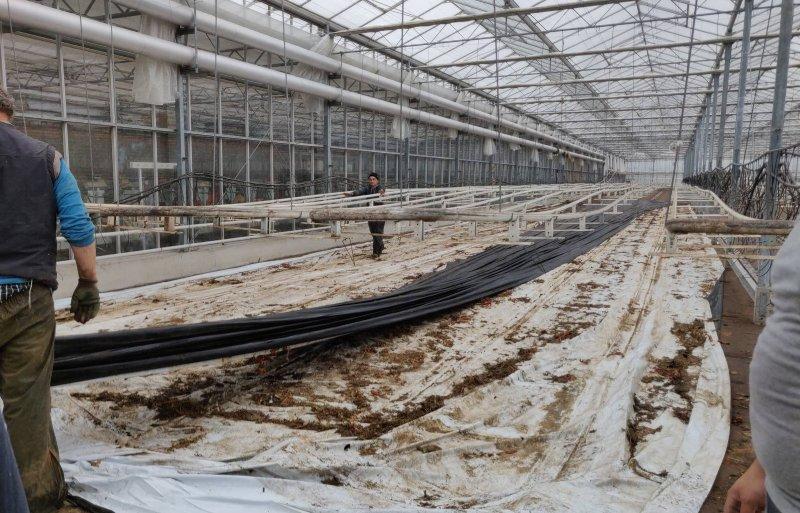Turning in plastic bottles, separating plastic waste at home. It's a small effort. But for most gardeners, disposing of plastic, especially plastic films, is a high cost. They are used to place over crops. Think of cover foil for asparagus cultivation and walking foil in greenhouses. As soon as there is a crop change, the films have to be changed and are considered waste.
Photo: © Platform Horticultural Residual Flows
Although the films are often used for several years, this still results in a large volume of plastic waste that is often contaminated. This makes it difficult to recycle. Many gardeners dispose of their waste at the landfill at high costs.
Platform Horticultural Waste Streams is fully committed to a transition in the processing and recycling of plastic horticultural film. 'There is quite a challenge here', says Willem van Hoof, involved in Platform Horticultural Residual Flows.
Collaboration with partners
To change plastic disposal here, the platform is working on a processing chain for horticultural film. 'We are looking together with partners from the sector at other possibilities, for example within processing, recycling and reuse of the foils', explains Van Hoof.
'First we look at preventing the use of plastic, for example by looking at the possibility of biodegradable alternatives for rope and clips. Then we shift this viewing direction to non-preventable plastics such as walking film and asparagus film.'
Experiments
Several horticultural companies in Limburg, including Teboza, Mellantas, BioVerbeek and Kwekerij Verberne, have joined the project. To look at opportunities in machinery, the platform got in touch with companies such as Clear Polymers and The Great Plastic Bake-off (GPBO). Equipment from the latter party is already being experimented with in Limburg.
'GPBO has developed a compact mobile machine that can convert heavily contaminated agricultural plastic into fit-for-purpose products. A fantastic development with future prospects, especially for contaminated and mixed plastic streams', Van Hoof believes.
Suitable material
Clear Polymers is experienced in processing asparagus film and has recently begun accepting and processing horticultural running film. 'We are always looking for suitable input material that we can use our expertise with. That is how we came across greenhouse film that meets those criteria'says managing director Gerard Weernink of Clear Polymers.
To be able to process this material, growers must take into account that the film may not be too contaminated with leaf residues or other materials that remain on the film at the end of the growing season.
System develop
Weernink: 'What is very important for us and the growers is to make the material suitable for recycling. The nature and extent of the current contamination is such that we cannot put it to direct use. Together we are now trying to develop a system or method by which we can make it recyclable. That should lead to growers being able to fit it into their current working methods and Clear Polymers being able to connect to that.' The company then produces a granulate from it that can be used again in agricultural film.
Platform Horticultural Residual Streams tries to support growers to set up the processes in the greenhouse in such a way that they fit in with the wishes of buyers, such as Clear Polymers in order to reduce the costs for disposal and to be able to recycle as much material as possible.
According to Van Hoof, there are numerous initiatives, but there is still a lot of work to be done. 'First of all, we have to prevent plastic and reuse plastic where that is not possible. We would like to get in touch with gardeners who are open to the possibilities of recycling their plastic.'
Source: newharvest
